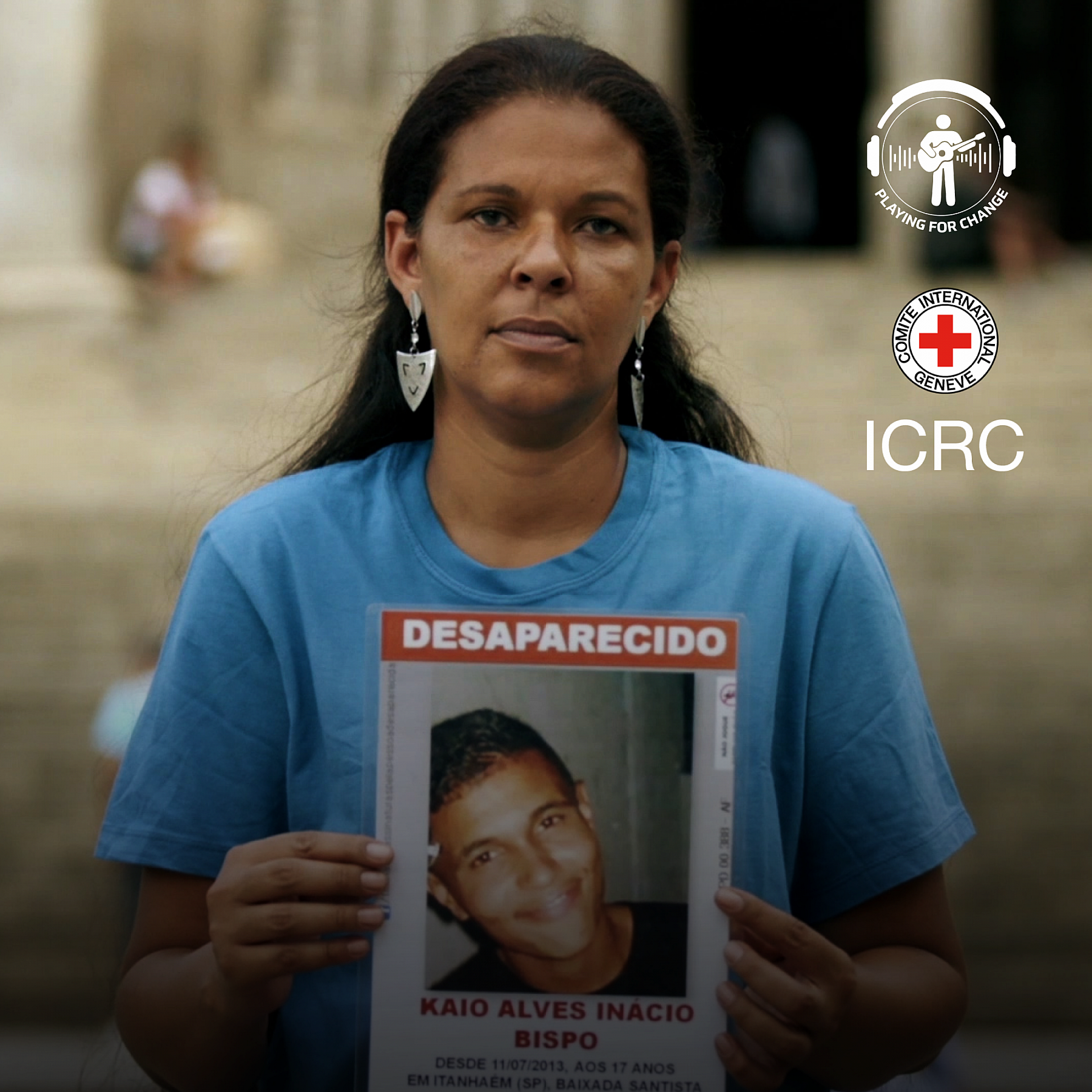The Most Influential Latin Rock Bands Of All Time | National Hispanic Heritage Month

Did you know that every year, National Hispanic Heritage Month is celebrated from September 15th to October 15th? This special month honors the rich histories, cultures, and contributions of Hispanic and Latin American communities, highlighting their impact across various fields, including art, literature, and music.
In celebration of Latin heritage, we’ve curated a list of some of the most influential and groundbreaking Latin rock bands.
While you may not be familiar with all of them, their music is a testament to the vibrant energy and diversity of Latin rock. From fusion sounds blending traditional rhythms with modern rock to powerful lyrics that speak to the heart of the Latin experience, these bands are definitely worth discovering.
Let their music inspire you as we honor the creativity and influence of Latin artists during this celebratory month!
Soda Stereo

Country: Argentina
Soda Stereo is a legendary band from Buenos Aires, Argentina, known for pioneering alternative rock, post-punk, new wave, and experimental rock in the Latin American music scene. Formed in 1982, the band consisted of Gustavo Cerati (lead vocals and guitar), Zeta Bosio (bass and backing vocals), and Charly Alberti (drums and percussion).
Soda Stereo - De Musica Ligera (the last concert)
The band is regarded as a cultural icon of the Spanish rock era of the 1980s and 1990s, with their music defining a generation. Gustavo Cerati emerged as one of the most legendary Spanish rock idols of all time, celebrated for his powerful vocals, poetic lyricism, and masterful guitar work. Soda Stereo's influence extended beyond Spanish-speaking audiences, as they even created English versions of some of their most famous songs, showcasing their ambition to bridge cultures and reach global audiences.
On the night of May 15, 2010, after performing a concert at the Simón Bolívar University auditorium in Caracas, Venezuela, Gustavo Cerati suffered a cerebral ischemia and was immediately hospitalized at the La Trinidad Teaching Medical Center. Tragically, he suffered a stroke that left him in a coma for four years. Despite the hopes and prayers of his fans and loved ones, Gustavo passed away on September 4, 2014, leaving behind an indelible legacy as one of the greatest icons in the history of Spanish rock music.
Their most popular songs: “De Música Ligera,” “En La Ciudad De La Furia,” “Persiana Americana,” “Trátame Suavemente,” “Té Para Tres.”
Los Fabulosos Cadillacs

Country: Argentina
The Argentinian band was influenced by iconic groups like The Specials, Madness, and The Clash, drawing inspiration from their energy and style. Originally founded by Mario Siperman, Aníbal Rigozzi, Vicentico, and Flavio Cianciarulo, the band quickly evolved and developed a unique sound that set them apart. They masterfully fused diverse genres such as rap, reggae, salsa, cumbia, tango, jazz, and ska, creating a vibrant and eclectic musical identity that resonated with audiences across Latin America and beyond.
Los Fabulosos Cadillacs - Siguiendo La Luna
Several of their albums have been recognized as some of the best in Latin American rock, with notable mentions in prestigious rankings such as Rolling Stone Argentina. Their innovative sound and impactful contributions to the music scene have also earned them numerous nominations and awards, including honors from MTV Latin America and the Gardel Awards. These accolades underscore their lasting influence and iconic status within the Latin music world.
Their most popular songs: “Matador,” ”Mal Bicho,” “Vasos Vacíos,” “Siguiendo La Luna,” “Cadillacs.”
Enanitos Verdes

Country: Argentina
Formed in Mendoza, Argentina, in November 1979, the trio initially consisted of Marciano Cantero (vocals and bass), Felipe Staiti (guitar), and Daniel Piccolo (drums). The band’s name, Enanitos Verdes (Green Dwarfs), was inspired by an intriguing and somewhat mysterious story. A family visiting the "Cristo Redentor de los Andes" near the Uspallata pass in Argentina took photos during their trip. When they later developed the pictures, the mother noticed a strange reddish spot next to them, which appeared to resemble the cone-shaped head of a dwarf, seemingly raising its left arm in a gesture of greeting. This unusual image sparked the band’s name, which became synonymous with their unique style and sound.
Hombres G, Enanitos Verdes - Luz de Día
Their most popular songs: “Lamento Boliviano,” “Luz de Día,” “Tu Carcel,” “La Muralla Verde,” “Devuélveme A Mi Chica.”
Santana
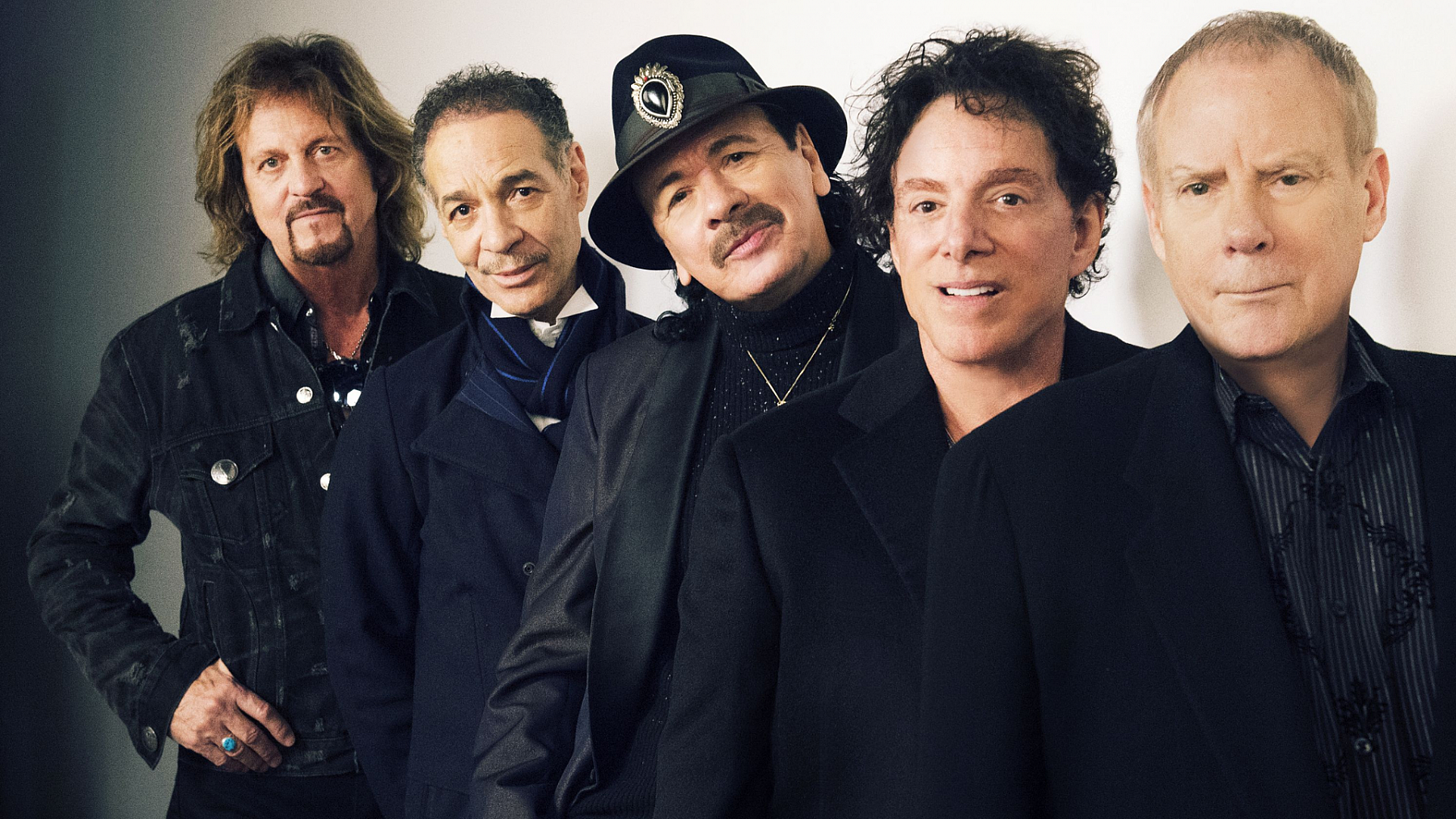
Photo: Maryanne Bilham
Country: United States
Carlos Santana, one of the first great stars in the history of modern music, is renowned for his ability to successfully blend jazz, rock, psychedelia, and blues with Latin rhythms. In 1966, he formed the Santana Blues Band alongside singer and keyboardist Gregg Rolie. This initial lineup soon expanded with the addition of bassist David Brown, drummer Bob Livingstone, and percussionist Marcus Malone, creating the foundation of the iconic band that would go on to revolutionize the music world. Santana’s fusion of Latin sounds with rock and blues created a signature style that continues to influence musicians worldwide.
Oye Como Va ft. Carlos Santana & Cindy Blackman Santana | Playing For Change
Read also: 13 Santana Songs You Must Have On Your Playlist
Their most popular songs: “Smooth,” “Black Magic Woman/Gypsy Queen,” “Why Don’t You & I,” “Oye Como Va,” “Europa,” “Samba Pa Ti.”
Los Lobos

Country: United States
Los Lobos is a Chicano rock band that was formed in 1973 by guitarist and accordionist David Hidalgo and percussionist Louie Perez. Since the mid-'80s, the band has become one of the most highly regarded groups in the Latin rock scene. Their breakthrough came in 1987 with their hit cover of Richie Valens' iconic song "La Bamba," which not only earned them widespread recognition but also showcased their ability to blend rock with their Mexican-American roots. Los Lobos continues to be celebrated for their innovative sound and rich cultural influence, with a career spanning decades and a broad array of musical styles.
La Bamba | Song Around The World
Did you know? This song was used for the soundtrack of the 1987 movie La Bamba, a biography about Ritchie Valens, the pioneer of Chicano rock.
Their most popular songs: “La Bamba,” ”Canción Del Mariachi,” ”We Belong Together,” “Come On Let’s Go,” “Donna.”
La Maldita Vecindad y los Hijos del Quinto Patio
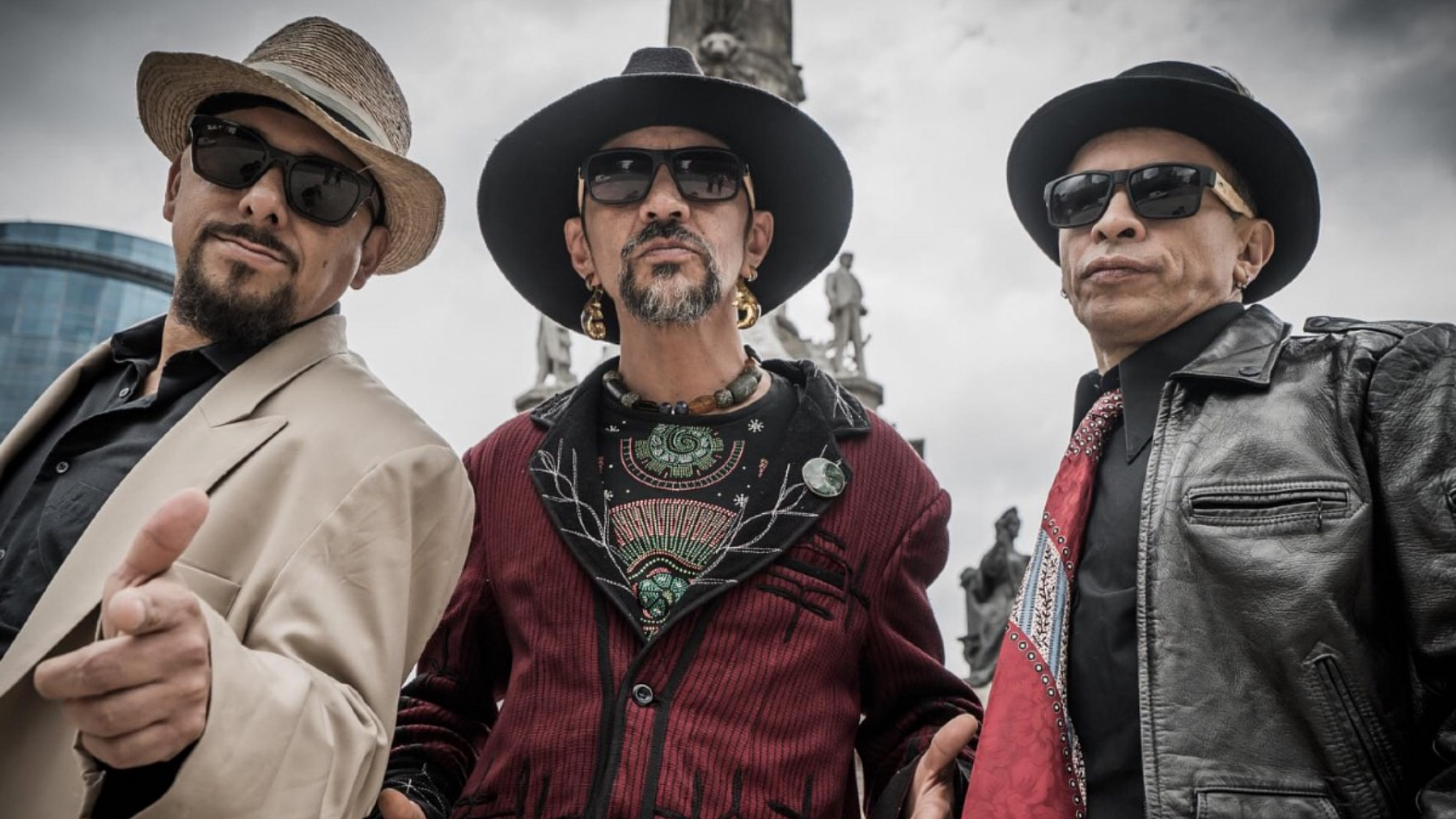
Photo: Marvin.com
Country: Mexico
Formed in Mexico City in 1985, the Mexican group has become known for its unique fusion of various musical genres, blending rock, ska, reggae, punk, and traditional Mexican music with elements of danzón and bolero. The band was originally composed of Rolando Ortega on vocals, Eulalio Cervantes on saxophone and wind instruments, Aldo Acuña on bass, Arturo Reyes on guitar, Adrián Navarro on percussion, and José Luis Paredes on drums.
La Maldita Vecindad - Kumbala
The name "La Maldita Vecindad" originates from an actual neighborhood where one of the band members used to live. This gave rise to the band's unique and memorable name, reflecting the gritty, real-life inspirations behind their music. Additionally, the name "Los Hijos del Quinto Patio" (The Sons of the Fifth Yard) was inspired by a song by Emilio Tuero called "Quinto Patio", which speaks of a poor lover who sings, "because he lives in the fifth patio and suffers from love." This connection to the song highlights the band's roots in the struggles of the marginalized and their ability to capture the emotions of everyday life in their music.
Their most popular songs: “Kumbala,” ”Pachuco,” ”Solin,” ”Dos Palabras,” “Un Gran Circo.”Andrés Calamaro

Country: Argentina
Andrés Calamaro is an iconic figure in Argentine rock, a Latin Grammy Award winner, and a former member of the successful band Los Rodríguez, which achieved major success in Spain during the 1990s. As a singer, composer, and guitarist, Calamaro has sold over 1 million albums throughout his career, cementing his place as one of the most influential figures in Latin music. Born in Buenos Aires, Argentina, he made his mark on the Latin rock scene at just 17 years old, quickly becoming a household name with his powerful lyrics and distinctive sound.
Andrés Calamaro - Flaca
Did you know? We met Andrés in Buenos Aires, hometown of PFC producer Enzo Buono and recorded him on our Song Around The World version of “La Bamba.”
His most popular songs: “Mil Horas,” “Flaca,” “Sin Documentos,” “Cuando No Estás,” “Tuyo Siempre.”
Elefante
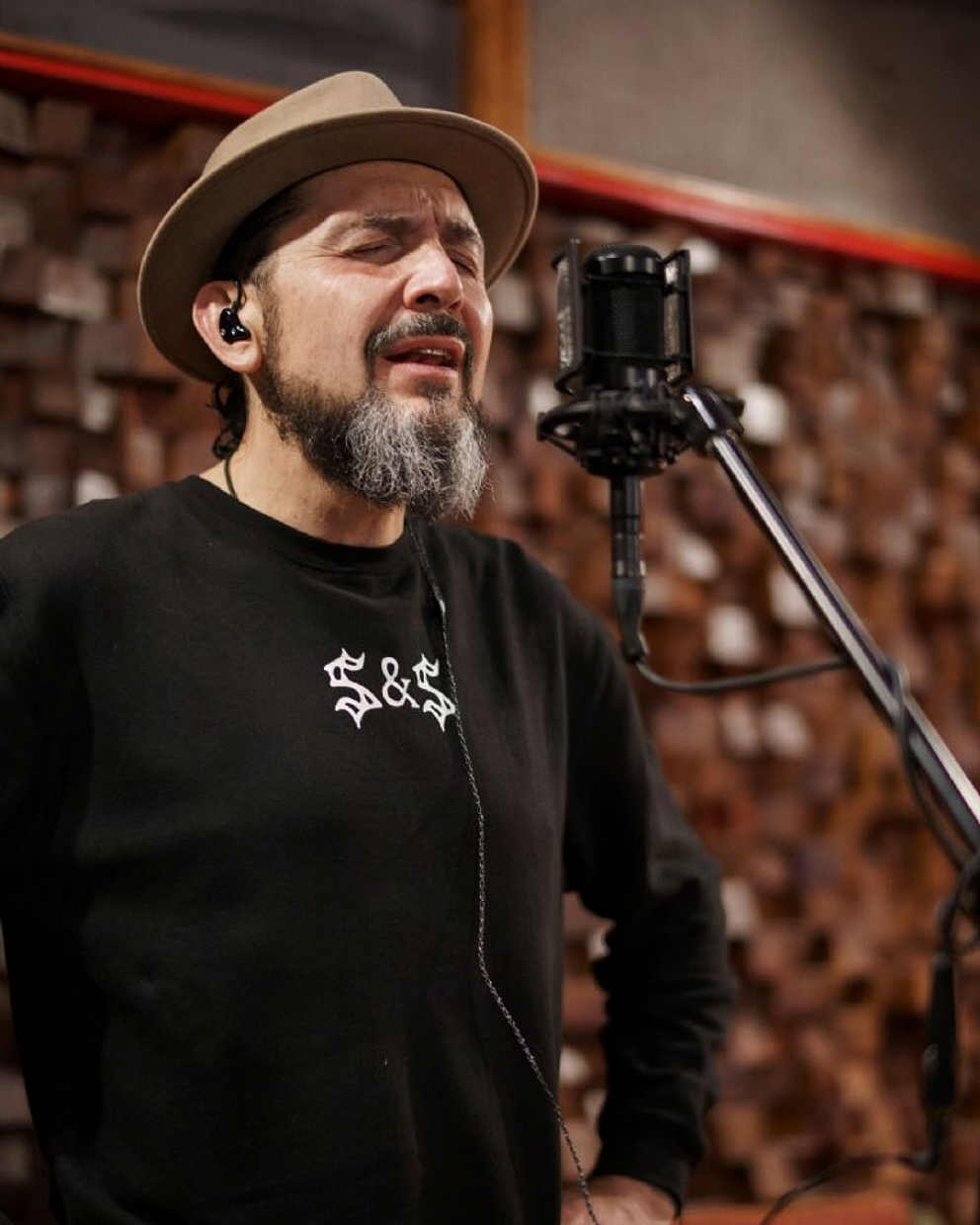
Country: Mexico
Hailing from Mexico City, this alternative pop/rock band was formed by Iguana (drums), Javier Ortega (vocals), Rafa (electric guitar and harmonica), and G. Tracks (bass). The band also featured the participation of vocalists Reyli Barba and Jorge Guevara, adding layers to their dynamic sound. Known for their eclectic blend of genres and captivating performances, the group quickly became a standout in the Mexican music scene, gaining a strong following with their unique approach to pop and rock.
Elefante - Durmiendo Con la Luna
Their most popular songs: “De La Noche A La Mañana,” “Así Es La Vida,” “Angel,” “De La Noche A La Mañana” and “Sabor A Chocolate.”
Bacilos

Photo: ElUniverso.com
Country: Puerto Rico, Colombia and Brazil
Formed in Miami, Florida, in 1995, Bacilos is a highly recognized and successful Spanish-speaking musical group composed of Jorge Villamizar (Colombia), José Javier Freire (Puerto Rico), and André Lópes (Brazil). Known for their catchy, cross-genre fusion of pop, rock, and Latin rhythms, Bacilos became one of the most popular and influential groups in the Americas and Europe. Their hit single "Caraluna" (2002) remains one of their most iconic tracks, and they won the Grammy Award for "Best Latin Pop Album" for their work, further solidifying their status in the Latin music scene.
Bacilos - Caraluna
Their most popular songs: “Caraluna,” “Mi Primer Millón,” “Tabaco Y Chanel,” “Pasos De Gigante,” “Perderme Contigo.”
La Ley

Photo: ElUniverso.com
Country: Chile
In 1987, guitarist Andrés Bobe and keyboardist Rodrigo Aboitíz decided to join forces, founding the rock/pop band La Ley. Initially, they were accompanied by Spanish vocalist Shia Arbulú, but after her departure, the group underwent several lineup changes. Luciano Rojas joined on bass, Mauricio Clavería took over on drums, and Alberto "Beto" Cuevas became the lead vocalist. With this final lineup, La Ley solidified its place in Latin rock history, going on to become one of the most influential bands in the genre.
El Duelo - La Ley
Their most popular songs: “El Duelo,” “Mentira,” “Fuera De Mi,” “Vi,” “Aquí,” “Dia Cero.”
Jaguares
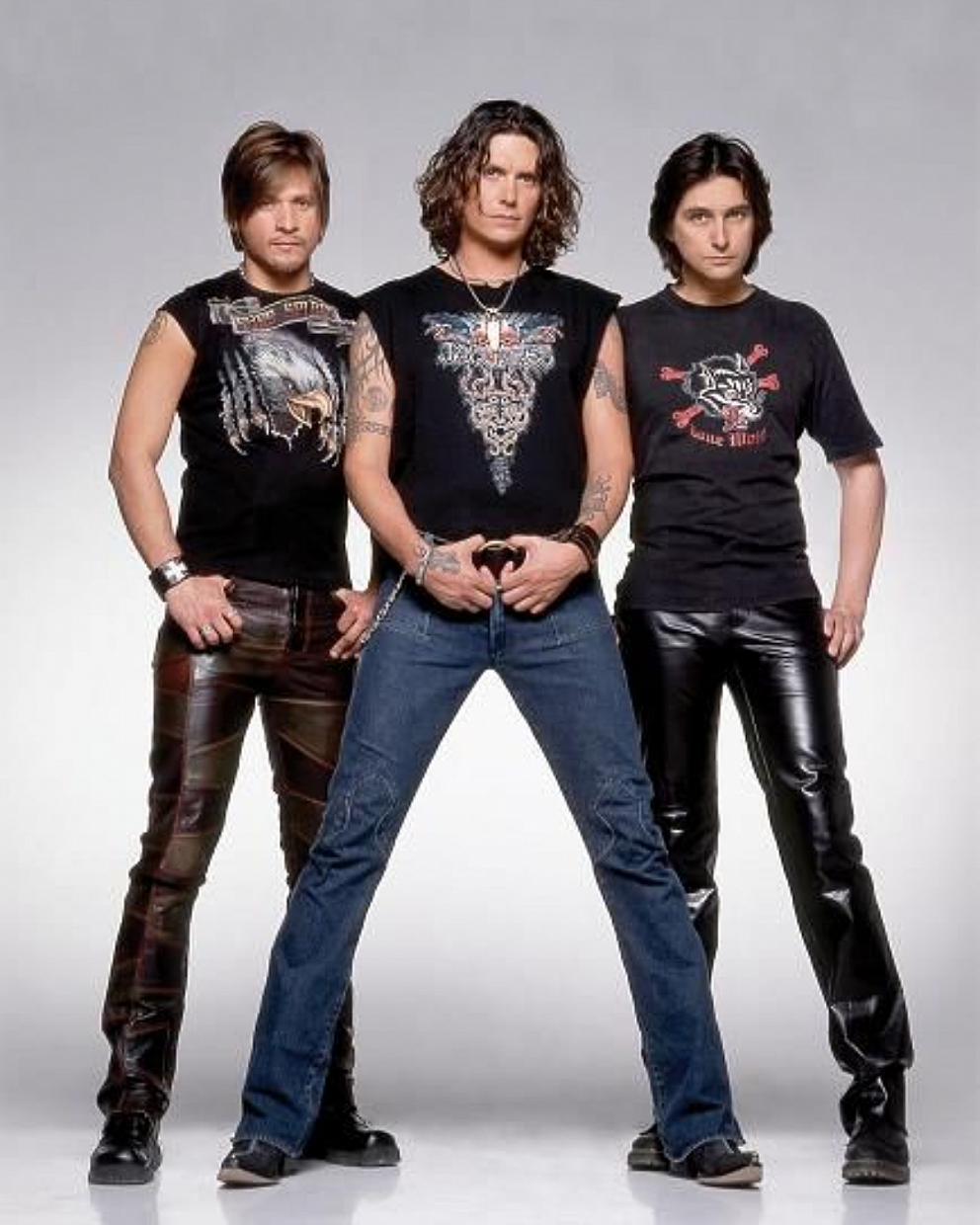
Country: Mexico
Jaguares is a Mexican rock group that emerged after the breakup of the iconic band Caifanes in 1995. The original lineup consisted of José Manuel Aguilera on guitar, Federico Fong on bass, and Alfonso André on drums and backing vocals, who had previously been members of Caifanes. However, Jaguares saw frequent changes in its lineup with almost every album release, reflecting the band's evolving sound and approach. Despite these shifts, Jaguares became one of the most significant rock bands in Latin America, known for their deep, introspective lyrics and fusion of rock with Latin rhythms.
Te Lo Pido Por Favor - Jaguares
Jaguares creates music that bridges the past with the present, crafting a sound that resonates deeply with both history and modernity. Their music, when performed live, transcends the typical concert experience—it becomes a communal ritual, an emotional journey shared by thousands of strangers. In these moments, the audience sings together, united by the hope of sharing their personal memories and experiences, creating a powerful connection through the band's music. This collective experience is what has made Jaguares not just a band, but a cultural phenomenon.
Their most popular songs: “Te Lo Pido Por Favor,” “Detrás De Los Cerros,” “Fin,” “Como Tú” and “No Dejes Qué.”
Café Tacvba
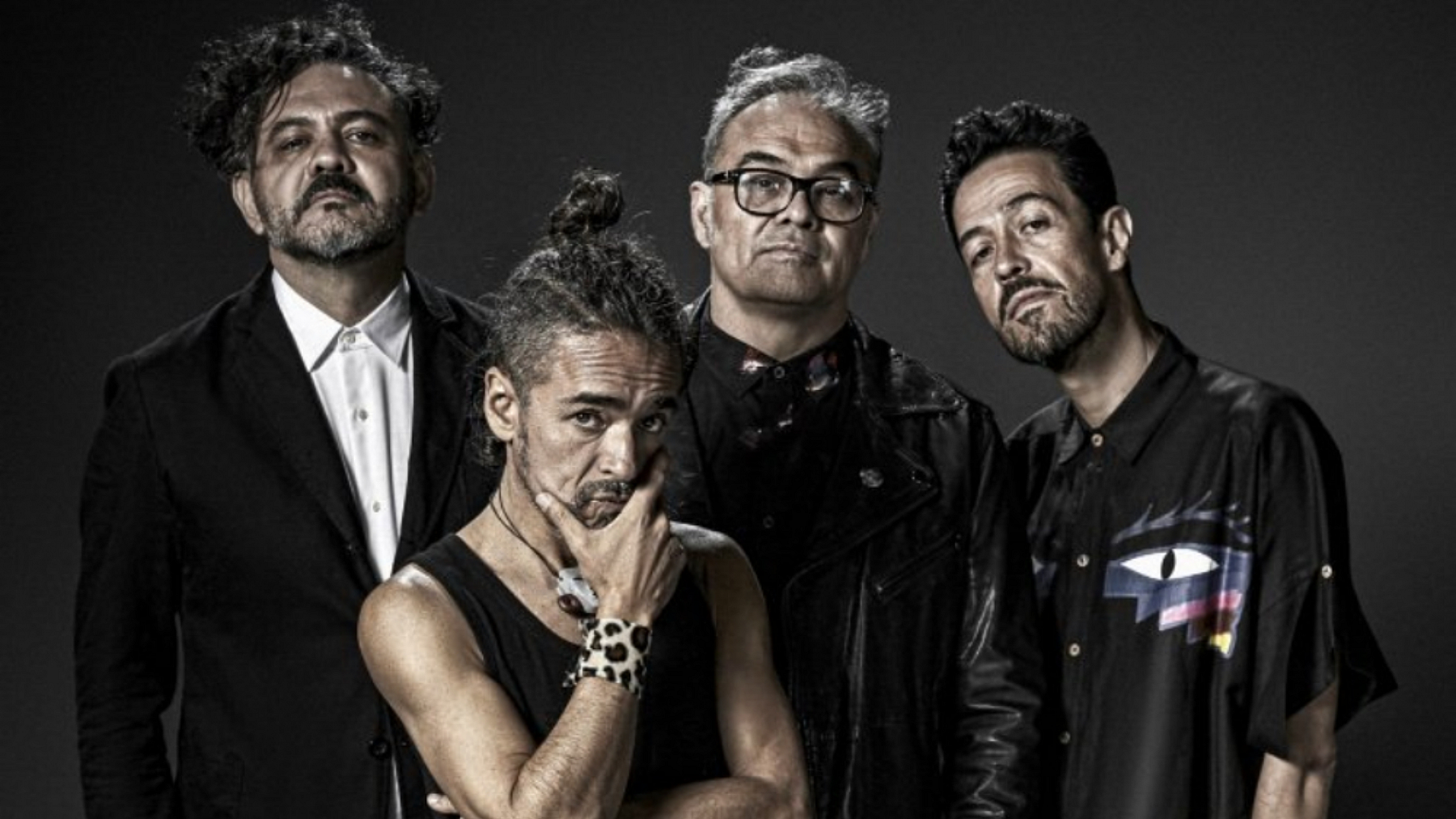
Country: Mexico
Café Tacvba is an influential alternative rock/pop band that was formed in 1989 by Emanuel Del Real (keyboards and production), Joselo Rangel (guitar), Enrique Rangel (bass), and Rubén Albarrán (vocals). Hailing from Mexico, the band quickly became one of the most important and pioneering alternative rock groups in all of Latin America. Known for their eclectic style, which blends rock, electronic, punk, and traditional Latin rhythms, Café Tacvba has consistently pushed musical boundaries, earning critical acclaim and a dedicated fan base across the globe
Café Tacvba - Quiero Ver
The name Café Tacvba is derived from an actual location in Mexico City, but the band decided to alter the original spelling to avoid legal issues. They replaced the "u" in Tacuba with a "v," creating Tacvba—a distinctive twist on the original name. This change not only helped the band avoid potential conflicts but also gave them a unique identity that aligned with their creative and boundary-pushing approach to music.
Their most popular songs: “Eres,” ”La Ingrata,” “Quiero Ver,” “Chilanga Banda,” “El Baile Y El Salón,” “Aprovéchate.”
El Gran Silencio
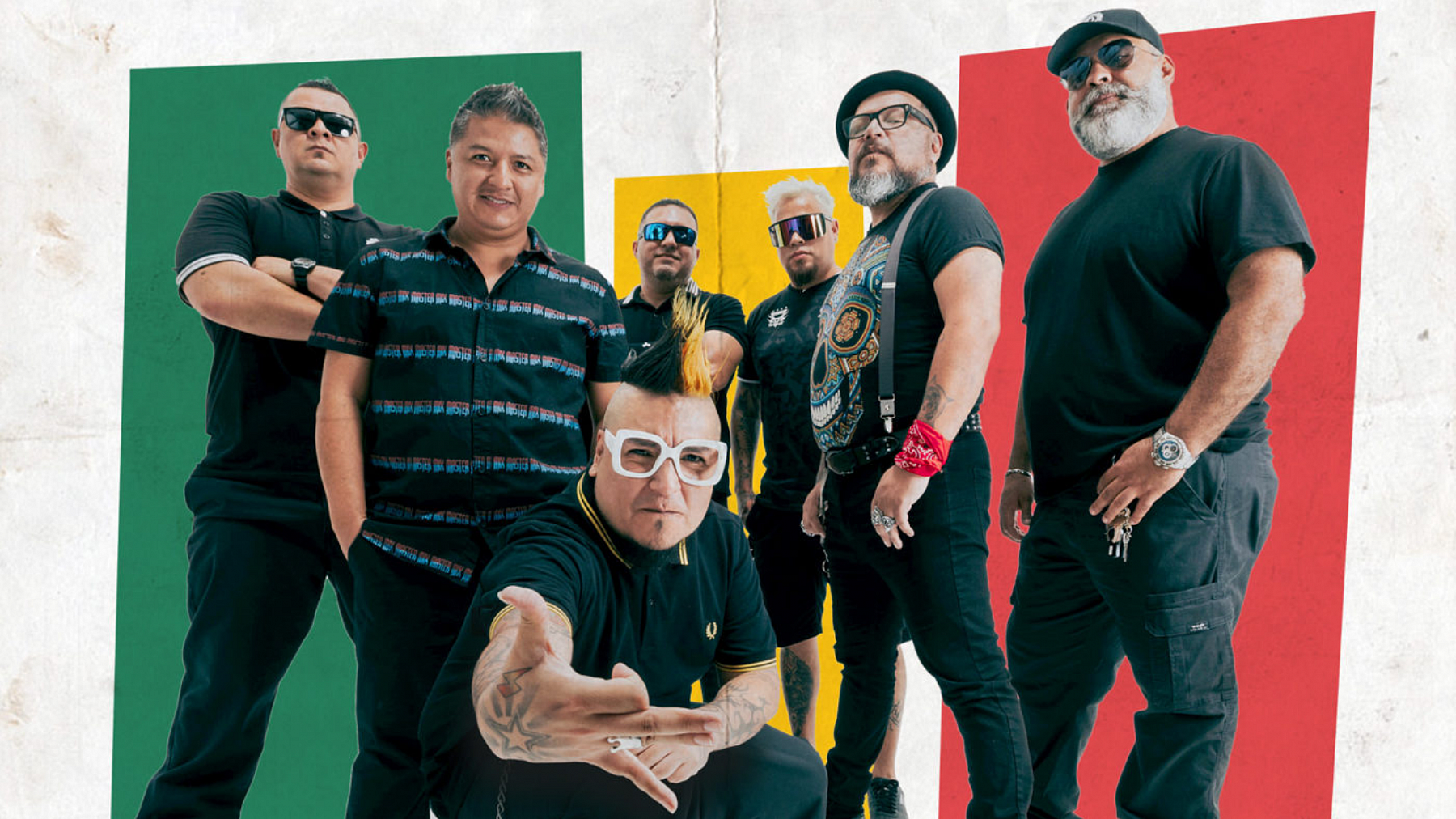
Photo: María Madrigal
Country: Mexico
The band was originally named Zona del Silencio (Silence Zone), after a real location in Durango, Mexico, where communications are mysteriously interrupted due to radioactive elements in the ground. Formed in Monterrey, Nuevo León, the band is considered one of the most eclectic on the Mexican music scene. They are known for their unique fusion of genres, blending ska, rock, reggae, dancehall, rap, and hip-hop with traditional Latin American music styles such as cumbia, vallenato, and norteño. This distinctive mix has made them a standout act, celebrated for their ability to seamlessly merge diverse musical influences into a fresh and vibrant sound.
El Gran Silencio - Dormir Soñando
Their most popular songs: “Círculo del Amor,” “Chuntaros Style,” “Dormir Soñando,” “Déjenme Si Estoy Llorando,” “Cumbia Lunera.”
Zoé

Photo: ElUniverso.com
Country: Mexico
The idea of forming the Mexican band Zoé came from the mind of vocalist León Larregui, who wanted to create an underground experimental band and began sharing their videos via the internet and through live concerts. The band was formed in 1995 and officially debuted in 1997 with León Larregui as the lead vocalist, Sergio Acosta on guitar, Jesús Báez on keyboards, Ángel Mosqueda on bass and Rodrigo Guardiola on drums.
Zoé - Labios Rotos
After the success of several albums, including Rocanlover (produced by Phil Vinall, known for his work with bands like Placebo and Elástica), the band has continued to evolve and stay active in the music scene. They are still working on new material and preparing for a Winter 2022 tour, where they will promote their most recent album, Sonidos de Karmática Resonancia. This album represents their ongoing commitment to innovation, blending new sounds and styles while maintaining their eclectic and distinctive musical identity.
Their most popular songs: “Labios Rotos,” “Soné,” “Luna,” “Arrullo de Estrellas.” “Azul,” “Love,” ”Nada.”
Caifanes
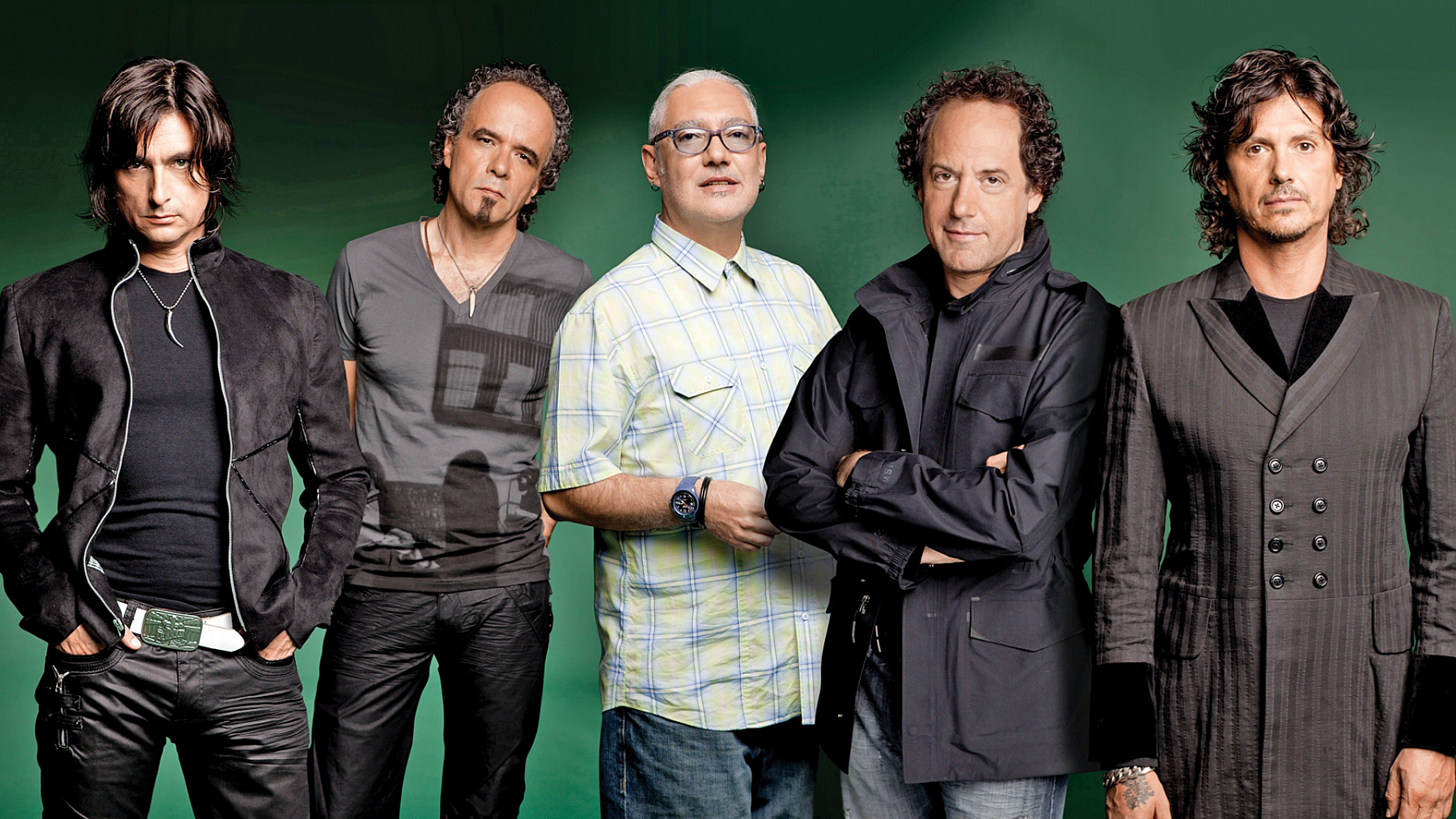
Country: Mexico
Caifanes made their debut on April 11, 1987, marking the beginning of their influential journey in Latin rock. The band was originally formed by Saúl Hernández as the vocalist and guitarist, Sabo Romo on bass, and Diego Herrera on keyboards and saxophone. Alfonso André joined the group on drums and percussion after their third live performance, completing the lineup. With their distinctive fusion of rock, new wave, and traditional Mexican sounds, Caifanes quickly became one of the most iconic and beloved rock bands in Latin America.
Caifanes - No Dejes Que
The term Caifanes is a creative blend of Spanish and English, originating from the border region between Mexico and the United States. The word "Caifán" combines the English word "fine" (meaning "bien" in Spanish) with the Spanish word "caer," a modern expression used in Latin America to describe how one feels about someone or something, often in a positive or affectionate way. This fusion of words reflects the band's unique approach to both language and music, symbolizing their blend of cultural influences and their ability to connect deeply with their audience.
Their most popular songs: “La Célula que Explota,” “Viento,” “Afuera,” “La Negra Tomasa,” “Aquí No Es Así,” “No Dejes Qué.”
Maná

Photo: Clarín
Country: Mexico
The Mexican group Maná was originally named “Sombrero Verde” (The Green Hat). In their beginnings, the group formed by Fher Olvera (lead vocalist), Gustavo Orozco (electric guitar), and the Calleros brothers,— Juan (bass), Ulises (electric guitar) and Abraham (drums)—used to play in bars of Guadalajara in 1980.
It wasn’t until 1986, they decided to form Maná, and in 1987 they released their debut self-titled album. Two years later they released their second album, Falta Amor (Lack of love), which produced the hit single, "Rayando el Sol," that catapulted the band’s international success.
Read full bio here: https://www.mana.com.mx/biografia
Maná - Clavado En Un Bar
Throughout their career, Maná has been honored with multiple awards, nominations and recognitions, including a star on the Hollywood Walk of Fame in 2016, becoming the first Mexican rock group to obtain this accolade.
Their most popular songs: “Mariposa Traicionera,” “Labios Compartidos,” “Rayando el Sol,” “Oye Mi Amor,” “En El Muelle de San Blas,” “Clavado en un Bar.”
Did you know? Maná actually performed in concert with Coldplay in Guadalajara, Mexico, as well as had collaborations with Santana!
Santana - Corazon Espinado ft. Maná
Los Tres
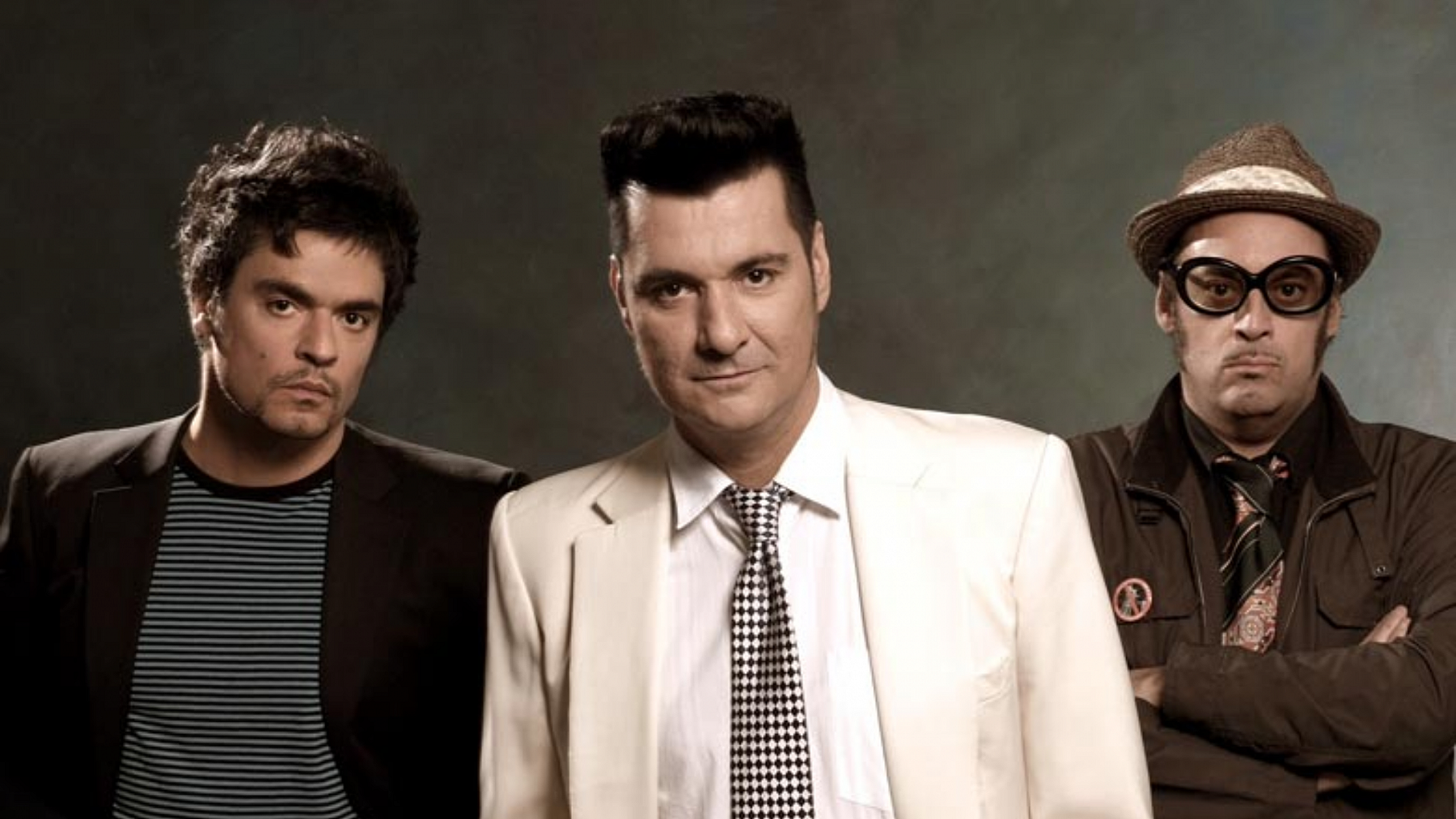
Country: Chile
Los Tres is a Chilean band with a rich mix of folklore roots, jazz, and rockabilly. The group was originally formed by Álvaro Henríquez, Ángel Parra, and Roberto Lindl. Their music quickly gained popularity in the university scene, as well as in bars and peñas (traditional Chilean music venues) around Concepción, Chile. This early success provided the momentum for the band to relocate to the capital city of Santiago in 1985, where they adopted the name Los Tres. From there, their distinctive sound and fusion of genres helped them become one of the most important and influential bands in Latin American rock history.
Los Tres - Dejate Caer
In April 2008, the Chilean edition of Rolling Stone magazine ranked their self-titled album, Los Trés, 20th of the best Chilean albums of all time.
Their most popular songs: “Un Amor Violento,” “La Torre de Babel,” “Primera Vez,” ”La Espada y la Pared,” “Déjate Caer.”
Los Prisioneros

Country: Chile
Jorge González (vocals and bass), Claudio Narea (guitar) and Miguel Tapia (drums) formed different groups at the beginning, playing with home-crafted instruments and experimenting with rap. It wasn’t until 1983, they debuted as Los Prisioneros at the Liceo Miguel León Prado, an institute in Chile.
Despite the political strength in the lyrics of Los Prisioneros, the group was labeled “suspicious” and “dangerous” because they challenged the status quo and opposed the Chilean dictatorship in 1979, however, after their album Pateando Piedras in 1986, songs like "Quieren dinero" (They Want Money), "Por qué los ricos" (Why The Rich People) and "Muevan las Industrias" (Move The Industry), contained accurate social criticism at the time and represented the voice of the youth of those years.
Read full bio here: https://www.last.fm/es/music/Los+Prisioneros/+wiki
Los Prisioneros - Tren Al Sur
Los Prisioneros is considered the most influential Chilean rock group. The austerity of their rock music and lyrics full of sharp social observation were the soundtrack of the Chilean youth in the midst of Augusto Pinochet's dictatorship.
Their most popular songs: “Tren Al Sur,” “Paramar,” “Estrechez de Corazón,” “El Baile de los que Sobran,” “Por Qué No Se Van.”
Aterciopelados

Country: Colombia
The group was formed in 1993 by Héctor Buitrago and Andrea Echeverri, and the same year they released their debut album Con el Corazón En la Mano, which led them to becoming the most popular rock group in Colombia.
Aterciopelados - Bolero Falaz
The band has been nominated for numerous awards including the Latin Grammy Award for Best Alternative Music Album.
Their most popular songs: “Bolero Falaz,” “Baracunatana,” “Florecita Rockera,” “Maligno,” “Rompecabezas.”
Did you know any of these bands? Which rock bands would you like to hear about next?
Let us know in the comment section below!

Don’t forget to check out our social media! Follow us for more news on our exclusive content like videos, music downloads, pre-releases and more.
Facebook: https://www.facebook.com/PlayingForChange/
Instagram: https://www.instagram.com/playing4change/
Twitter: https://twitter.com/playing4change
Tik Tok: https://www.tiktok.com/@playing4change?_t=8XHNmPDZwX8&_r=1
One Love,
Playing For Change


